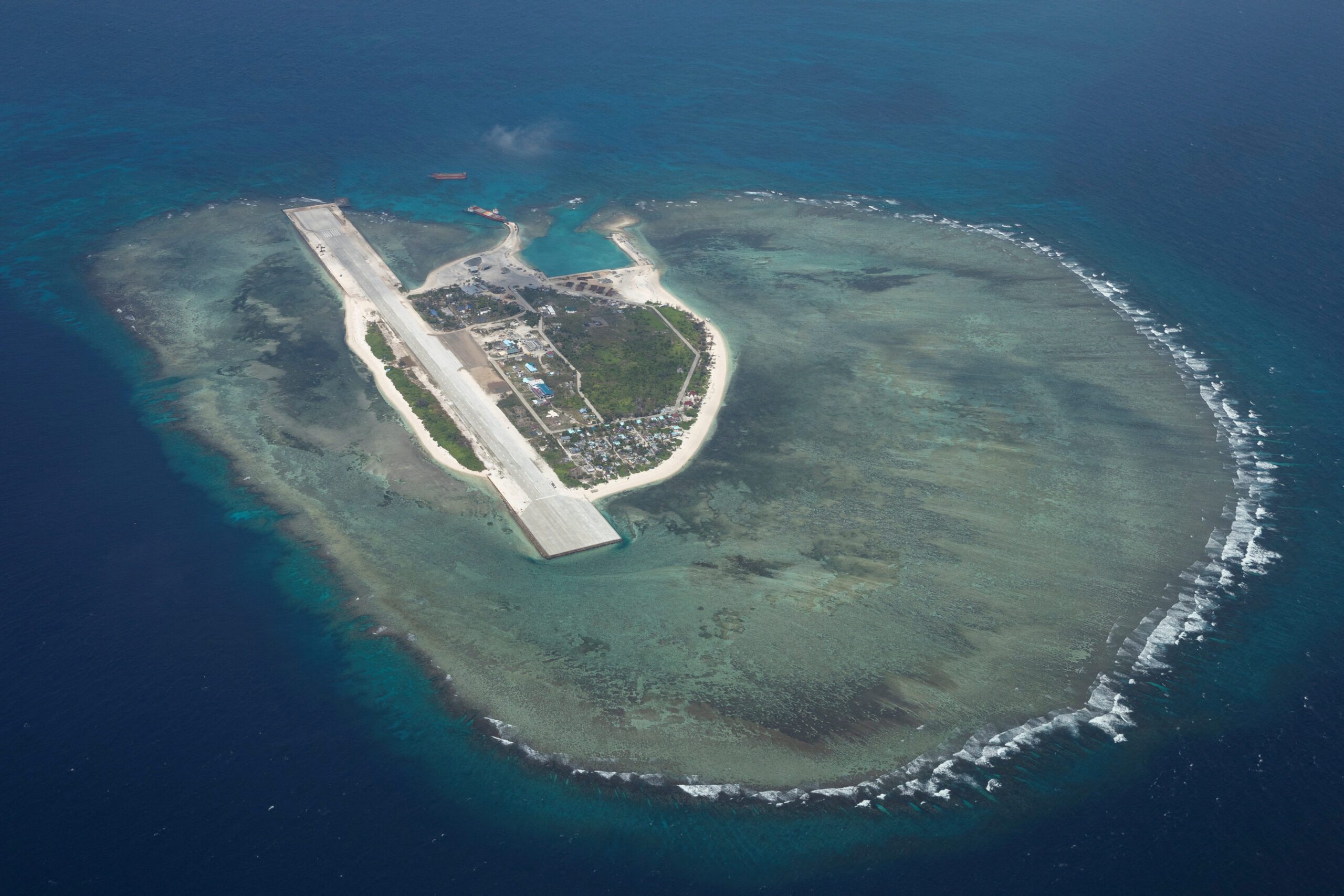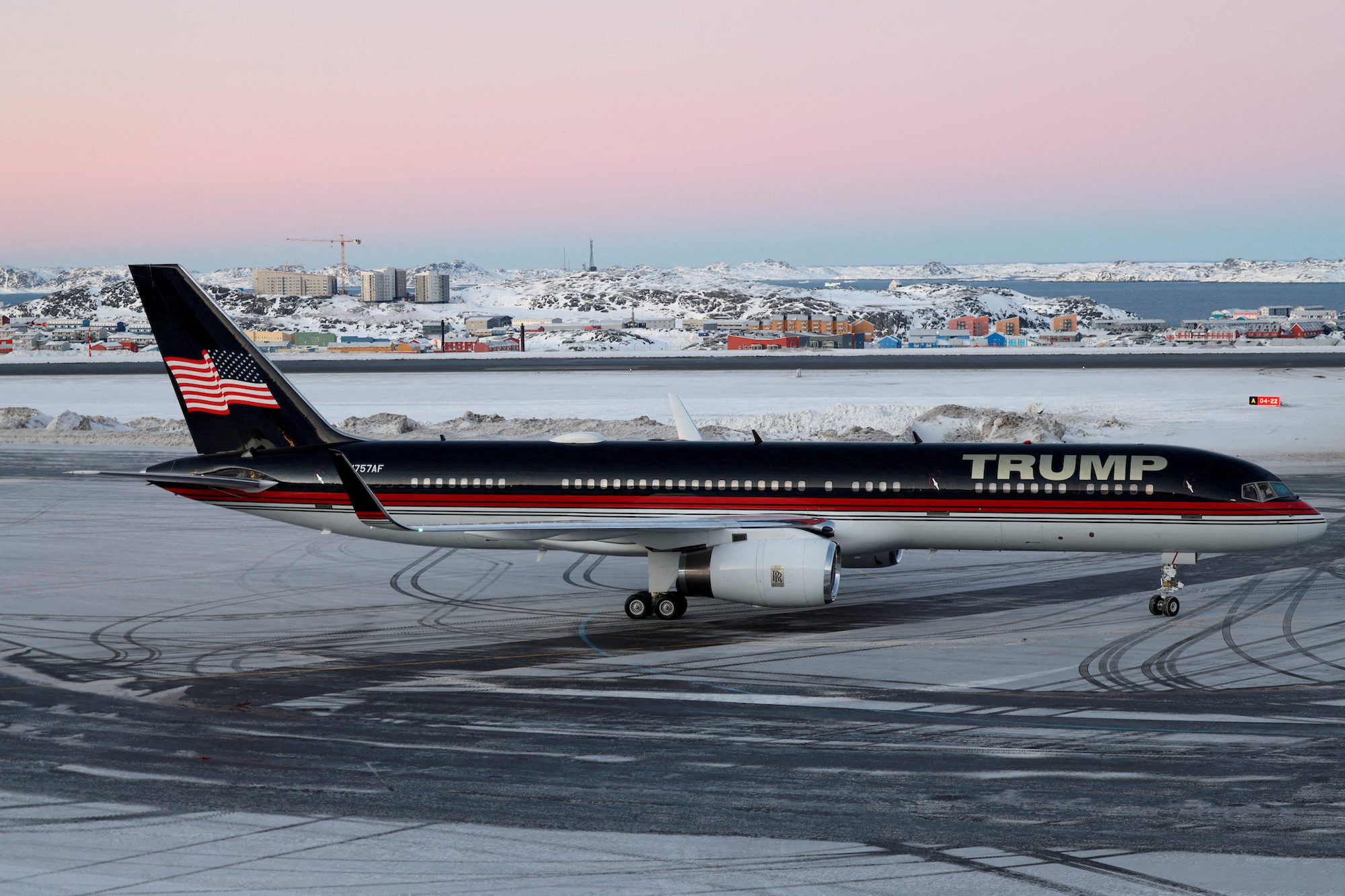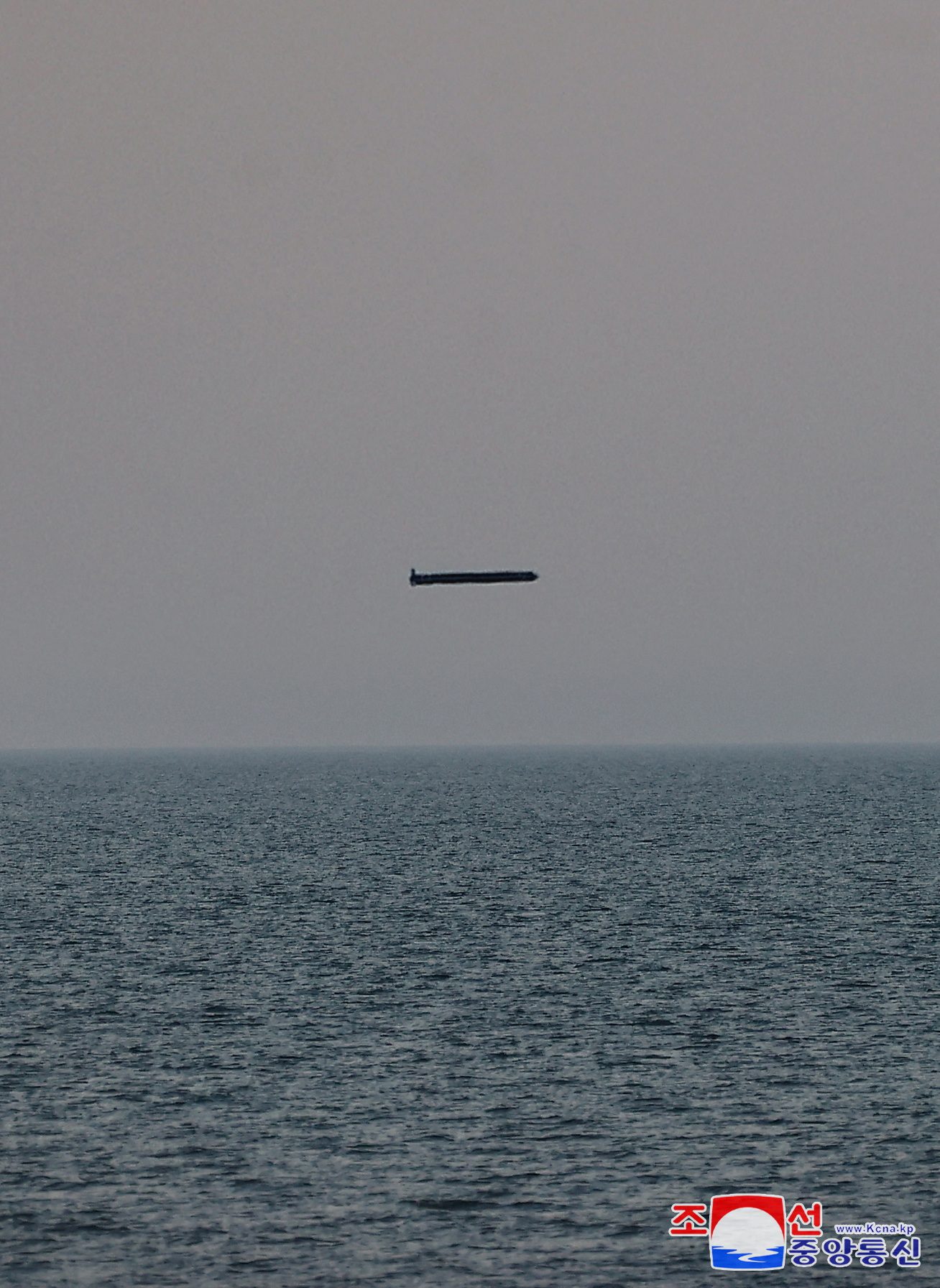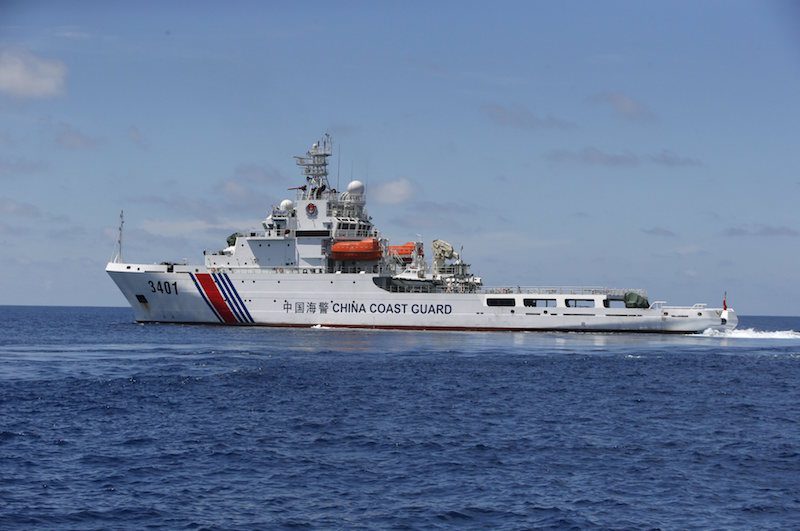By Peter Hobson and Lewis Jackson
CANBERRA, Nov 12 (Reuters) – China is stepping up pressure on the Philippines to concede its sovereign rights in the South China Sea, Manila’s Defense Secretary Gilberto Teodoro said on Tuesday after meeting his Australian counterpart in Canberra.
The fifth such meeting since August 2023 reflects growing security ties between the countries, which have both voiced concern about Chinese activity in areas of the busy waterway claimed by the Philippines and other Southeast Asian nations.
“What we see is an increasing demand by Beijing for us to concede our sovereign rights in the area,” Teodoro said after meeting Australian counterpart Richard Marles, adding that the Philippines was a “victim of Chinese aggression.”
The two countries signed a strategic partnership in September 2023 before holding their first joint sea and air patrols in the South China Sea months later. This year, the Philippines also joined war games in Australia for the first time.
A spokesperson for the Chinese foreign ministry said Beijing has taken measures to assert its rights after the Philippines “infringed first.”
“If the Philippines no longer infringes and provokes, there will be no more escalation of the maritime situation,” Lin Jian told a press briefing.
China and the Philippines have sparred repeatedly this year over disputed areas of the South China Sea, including the Scarborough Shoal, one of Asia’s most contested places.
On Sunday, China said had defined a baseline of “territorial waters” around the shoal in response to Philippine approval of two laws defining its sea lanes and maritime zones to bolster its territorial claims around the South China Sea.
Manila’s national maritime council said on Tuesday it objected to China’s establishment of baselines and accused Beijing of violating its sovereignty.
“The establishment of the baselines by China around the shoal is a continuation of its 2012 illegal seizure of the shoal, which the Philippines continues to strongly oppose,” it said in a statement.
China has ramped up its maritime patrols in the South China Sea, state-backed Global Times said late on Monday, deploying vessels capable of longer patrols and stricter enforcement after the Philippines passed new laws to protect its rights in the vast waterway.
Thousand tonne-class ships with “strong cruising and resupply capabilities” will be used, while hundred tonne-class patrol boats with “high maneuverability and flexible enforcement tactics” will enable pursuit and interception of fast-moving targets and boarding inspections, the Global Times said.
Since seizing the Scarborough Shoal in 2012 after a standoff with the Philippines, China has maintained a constant deployment there of coastguard and fishing trawlers, some accused by Manila of being maritime militia.
China claims almost the entire South China Sea, a conduit for more than $3 trillion of annual ship-borne commerce, including parts claimed by Brunei, Indonesia, Malaysia, the Philippines and Vietnam.
In 2016 the Permanent Court of Arbitration in the Hague said China’s claims had no legal basis, a ruling Beijing rejects.
Teodoro said China’s claims and behavior were contrary to international law and defense deals with partners such as Australia were an important way to deter Chinese incursions.
“Although they (China) claim to act under the aegis of international law, everybody knows that what they’re doing is contrary to the tenets of international law,” he said.
“The biggest evidence of this is that nobody has actually supported their actions or activities.”
In addition to closer ties with countries such as Australia and the United States, the Philippines also plans to spend at least $33 billion on new weapons, such as advanced fighter jets and mid-range missiles.
Marles said Australia wanted to work more closely with the Philippine defense industry and would send an engineering assessment team there early next year.
(Reporting by Peter Hobson, Lewis Jackson and Alasdair Pal; Additional reporting by Mikhail Flores in Manila and Liz Lee in Beijing; Editing by Clarence Fernandez and Kim Coghill)
(c) Copyright Thomson Reuters 2024.
Unlock Exclusive Insights Today!
Join the gCaptain Club for curated content, insider opinions, and vibrant community discussions.

 Join The Club
Join The Club











